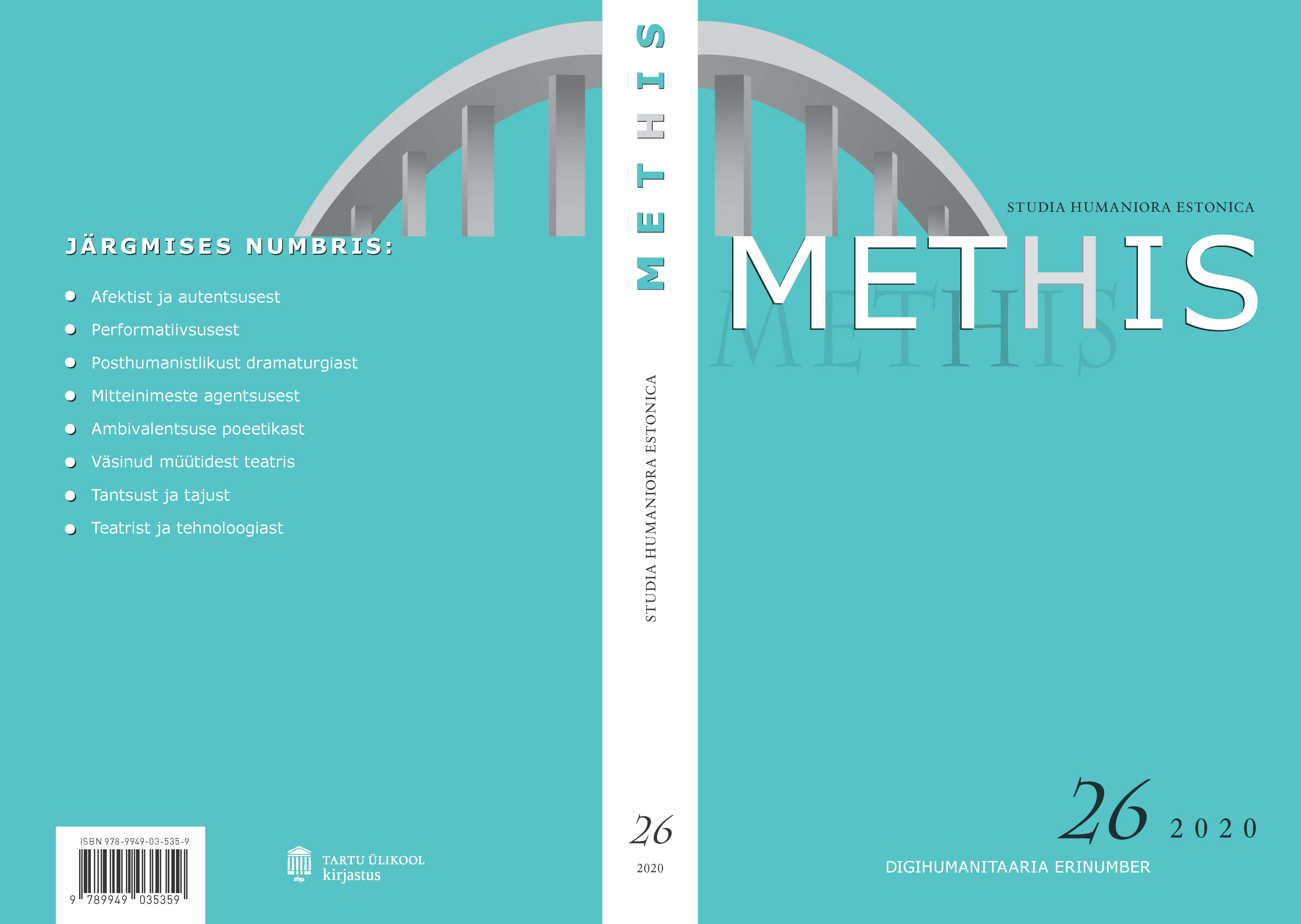Arvutiteaduse kaasamine humanitaarharidusse / Integrating Computation into Humanities Education
DOI:
https://doi.org/10.7592/methis.v21i26.16909Keywords:
digihumanitaaria-alane haridus, arvutuslik humanitaaria, interdistsiplinaarsus, projektipõhine õpe, digital humanities education, computational humanities, interdisciplinarity, project-based learningAbstract
Digihumanitaaria-alane haridus peaks keskenduma selgelt määratletud allvaldkondadele, mis on mõttekad kohalikus kontekstis. Otsustasime Helsinki ülikoolis pöörata peatähelepanu interdistsiplinaarse digihumanitaaria valdkonnale. Käesolevas artiklis näitame, et digihumanitaaria-alaste uuringute edukaks läbiviimiseks on oluline interdistsiplinaarsus, ning väidame, et seda on digihumanitaarharidusse kõige parem liita humanitaarteaduslikel ühisuuringutel põhineva projektipõhise õppe kaudu.
Digital Humanities can be regarded as a complex landscape of partially overlapping and variously connected domains, including e.g. computational humanities, multimodal cultural heritage and digital cultural studies and cultural analytics (Svensson 2010). Yet, as a precondition for setting up an educational programme within an academic institution, one needs to be able to delineate the discipline being taught (Sinclair and Gouglas 2002, 168) in terms of a coherent academic identity, interrelations between courses, and skills that graduates will attain. Therefore any locally situated educational enterprise needs to focus on those areas of DH that can be reasonably tied to research conducted at the hosting institution. At the University of Helsinki, we have put particular effort into defining our educational profile in interdisciplinary computational humanities, taught both as a minor studies module (30 ECTS) and an MA track (120 ECTS).
Because of the complexities of humanities data and the lack of standard protocols for dealing with it, it is very difficult for a humanities scholar to apply computational and statistical methods in a trustworthy manner without specialist help. At the same time, neither can computer scientists, statisticians or physicists answer humanities questions on their own, even if they understand the algorithms. Our solution to this problem is to argue that computational humanities research, and as a consequence also digital humanities education, should be fundamentally interdisciplinary endeavours, where statisticians, computer scientists and scholars in the humanities work together to develop, test and apply the methodology to solve humanities questions. Our version of computational humanities thus exists precisely and solely at the intersection of humanities and computer science rather than as separate from either of them. Consequently, people participating in this field should primarily anchor their academic profile to one of the parent disciplines instead of trying to find an identity purely in the middle. This is reflected in our educational approach.
We provide students in the humanities with instruction on how to use ready-made tools, workflows or applied programming, granting them a general digital competency and agency, but our focus is on developing a broader literacy regarding data and computational methods. By learning to contextualize their skills within the field of computational humanities as a whole, the humanities students also learn to assess where their personal boundaries lie, and where an interdisciplinary collaboration is required instead. In this context, their computational literacy also helps them converse with the methodological experts coming to the field from computer science.
In this interdisciplinary setting, we take a project-based approach to learning, tying teaching to actual research projects being conducted at the faculty. This approach both harnesses the varying competencies of our students and provides an excellent basis for learning interdisciplinary collaboration (Bell 2010). The culmination of our project courses is the Digital Humanities Hackathon, a multidisciplinary collaboration between the University of Helsinki digital humanities programme and the data science programmes at the Department of Computer Science and Aalto University. For researchers and students from computer and data sciences, the Hackathon is an opportunity to test their abstract knowledge against complex real-life problems; for people from the humanities and social sciences, it shows what is possible to achieve with such collaboration. For both, the Hackathon gives the experience of working with people from different backgrounds as part of an interdisciplinary team and simulates group work in such professional settings as the students may find themselves in after graduation, acculturating them to work outside academia (cf. Rockwell and Sinclair 2012).
Our conception of computational humanities as intrinsically collaborative and interdisciplinary is based on the realisation that the traditional, single-author research culture of the humanities is a hindrance to successfully integrating computational approaches into humanities research. We feel that our formulation of the field has the power to contribute to the renewal of research culture and education within the humanities in general, adding value to traditional disciplinary curricula, as well as equipping students with skills relevant in the workplace.


